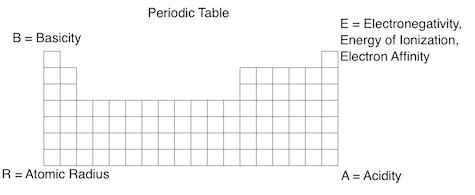Studying for the MCAT is tough. There is a lot science content that students need to have memorized in order to do well on the exam. So how do students do it? We’ll tell you! In this post, we describe some great memorization techniques for the MCAT.
These techniques are great for reviewing the sciences, but you should also check out one of our previous posts to get study tips for the Critical Analysis and Reasoning Skills (CARS) section of the exam and our top 10 MCAT tips overall. Additionally, if you’re looking to solidify your knowledge of the material, Magoosh offers MCAT prep to assist you.
Flashcards
Flashcards are the one of the most common methods that pre-medical students will use to study for the MCAT. They are useful for a number of subjects on the MCAT, especially biology. There are many facts in biology that students have to have memorized cold for the exam. Hormones are one example. For the MCAT, you need to know the name of each hormone, what organ/gland produces the hormone, what causes the releases of the hormone, what the targets and effects of the hormone is, and how the hormone is regulated. Considering how many different hormones you have to know, you can see why flashcards are a great MCAT study tool. Additional topics that I would recommend using flashcards for include physics equations and the twenty amino acids (the one-letter codes, three-letter codes, side chain structure, and which ones are acidic/basic/polar/nonpolar). You can definitely make your own flashcards by hand or you can make them online using free websites like Quizlet. On Quizlet, you can actually find a whole bunch of premade flashcards for the MCAT from other pre-medical students.
Drawing Things Out
You might recall from your biochemistry class in college when you had to painfully memorize all of cellular respiration (glycolysis, Krebs cycle, electron transport chain/oxidative phosphorylation) and the associated side pathways (gluconeogenesis, glycogenesis/glycogenolysis, pentose phosphate pathway, etc.). Thinking about how you now have to rememorize these pathways (though to less detail than your college course) while reviewing for all the other science subjects on the exam can definitely be intimidating. You can try to memorize the figures of the pathways in your textbooks but most students will find this approach to be ineffective. Better yet, try to draw out the pathway on blank sheets of paper from memory. At first, it will be tough but with practice you will be able to do it easily. What is great about drawing these pathways on blank sheets of paper is that you can connect all the pathways together. By doing so, you will have a much better understand of the biochemistry as opposed to just thinking of them all as independent pathways.
Mnemonics
A mnemonic is a device that aids in memorization. When you go on to attend medical school, you will learn that mnemonics will become your best friend when studying. Similarly, mnemonics are a great memory technique for the MCAT. Below, we have a few of our favorite ones:
General Chemistry – Oxidation/Reduction:
LEO the lion says GER (LEO = Loss of Electrons is Oxidation, GER = Gain of Electrons is Reduction)
General Chemistry – Periodic Trends:
BEAR (B=Basicity, E=Electronegativity/Energy of Ionization/Electron Affinity, A = Acidity, R = Atomic Radius)
Biology – The Three Stop Codons (UAA, UGA, UAG):
You(U) Are Annoying (UAA), You(U) Go Away (UGA), You(U) Are Gone (UAG)
Biology – Nitrogenous Bases:
PYRamids are sharp, they CUT (PYRimidines = Cytosine, Uracil, Thymine)
AnGels are PURe (PURines = Adenosine, Guanine)
Of course, there are many more mnemonics out there, and if you can’t find one that fits a need you have, make up your own! (OK, that video is from our GRE prep program, but the concepts still apply!)







